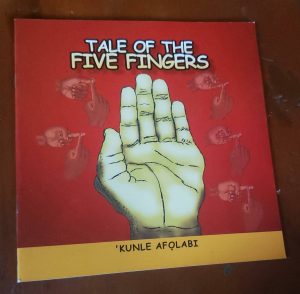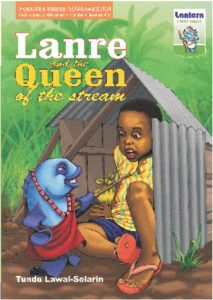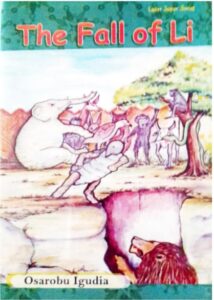BOTH BOYS and girls love good plays and interesting stories. In many parts of this
country, they look forward eagerly to the evenings when in the lovely moonlight,
they join their parents and elders in narrating beautiful legends, the stories of their ancient ancestors, and interesting folklore. They will often tell and re-tell these
stories or even act them the following day until the evening brings them again to
hear more, keeping them out of their beds long after they should have been asleep.
Such is the delight children derive from stories and plays.
Apart from this, good plays also stir and develop the imagination. Young people
have a ready way of identifying themselves with the heroes and heroines of the
plays they read. Good plays help them to put themselves in the place of other
people, thereby enlisting their interest and sympathy. But whether plays are
regarded as a means of escape from reality or simply as a way of purging their
souls of pent-up emotion and unreleased energy, very few educationists are likely
to doubt the value of an interesting play in the education of a child.
It is with these aims that I have written some plays for our young boys and girls.
Many adults, too, will find them revealing and interesting; for they cannot but
remind them of the stories and legends which they already know. Instead of a long
prose narrative, they will see and hear the actors and actresses engaged in
interesting dialogue, and this may even provide them with an opportunity for
studying human motives and behavior.
The plays are easy to act. They do not require elaborate costumes and apparatus as
it is very easy for young boys and girls to imagine or assume the appearance of the
characters in almost any given situation. The type of costumes should therefore be
determined by the size of the purse of the producer. Few detailed directions have
been given, in order to give room for flexibility in production and allow the actors
and actresses to develop and use their imagination.
The plays are also simple in construction. The Incorruptible Judge is about a young
school-leaver who applies for a vacancy. Instead of giving the bribe of five pounds
demanded of him, he reports the matter to a policeman, and this leads to
the corrupt employer’s arrest. Despite all the attempts made to influence him by his
father-in-law and an important Chief, the trial Judge proves incorruptible. The
corrupt officer is eventually convicted and sent to prison amidst the wailings and
weepings of his relatives and friends.
Considering the theme of this play, one might easily conclude that it is primarily
meant to teach morals. This is not so. Its primary aim is to entertain. Nevertheless,
play that deals with matters of general interest such as seeking a job,
demanding and taking a bribe, the arrest, and trial of an unscrupulous employer,
etc., cannot but contain some fundamental truths or illustrate some underlying morals.
As this does not detract from its entertainment value and appeal, I leave
the interested reader to deduce and profit from it, if he can.
Finally, the English used is simple and conversational English. This, I feel, will be
found very helpful in our schools, where students often find it rather difficult to
think, converse, and discuss things readily in English. The dialogue is lively and
interesting and of the kind, the pupils will require in day-to-day affairs and activities.
The polite way of making or refusing a request, and the indignant way of answering
an insult or an act of treachery and bad faith will, no doubt, be of some help to the
readers in their human relationships. There is also the court scene which, I think,
should interest every layman, old or young.





